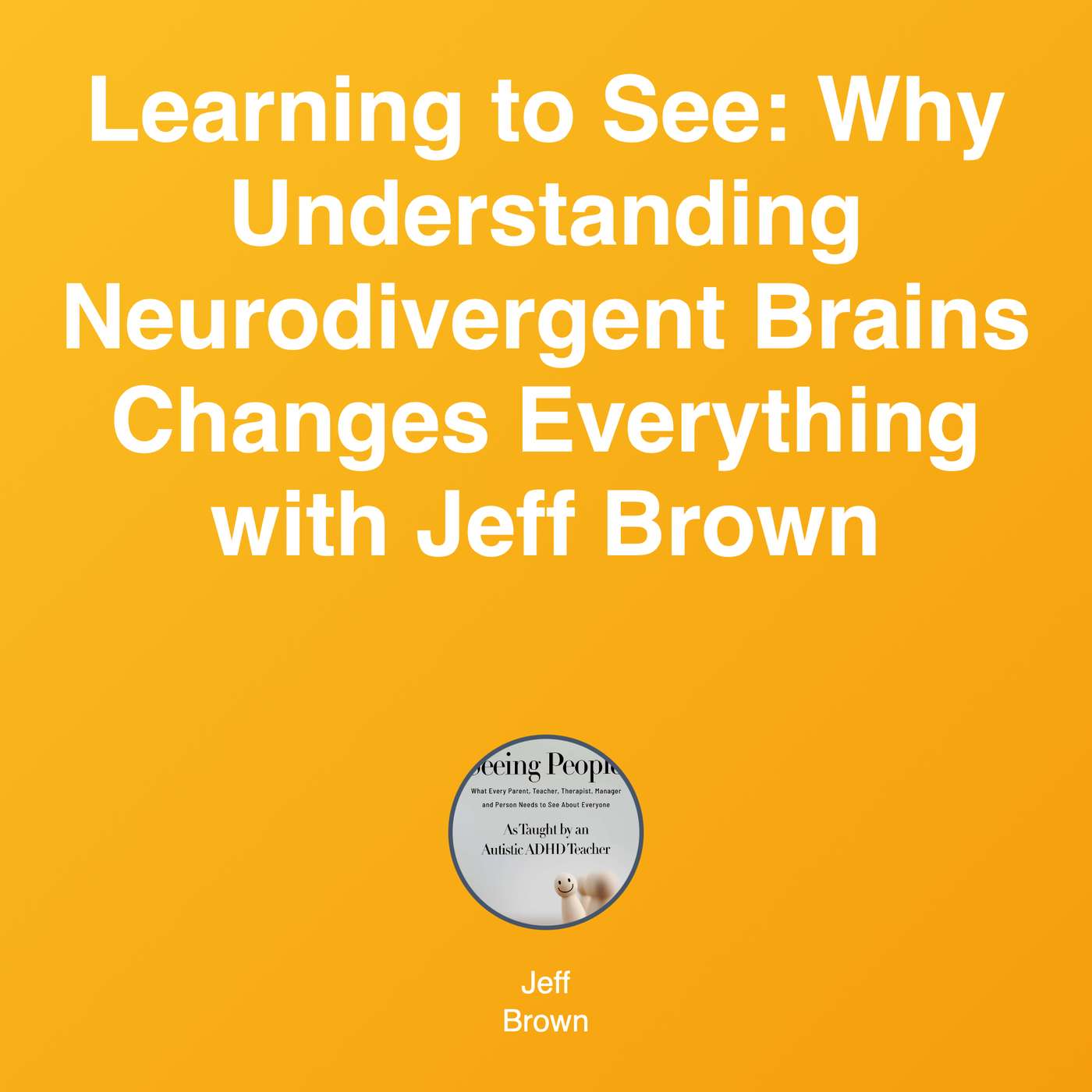The Neurodiversity Voices Podcast

The Neurodiversity Voices Podcast
Podcast Description
The name “Neurodiversity Voices” suggests a platform or initiative dedicated to amplifying the perspectives and experiences of neurodiverse individuals. It implies a focus on inclusivity and representation, where the unique voices of people with different neurological conditions, such as autism, ADHD, dyslexia, and others, are highlighted and celebrated. The name conveys a sense of community and advocacy, aiming to foster understanding and acceptance of neurodiversity by sharing personal stories and lived experiences.
Website: https://www.neurodiversityvoices.com
Podcast Insights
Content Themes
The podcast focuses on themes such as self-advocacy, mental health support in academic settings, and personal journeys of neurodiversity, with episode examples including discussions on safe spaces for neurodivergent students and insights on the intersection of sociology and neurodivergence.

I’m Paul, the host of The Neurodiversity Voices Podcast.
I’m not a clinician, researcher, or professional expert — and that’s intentional.
I come to this work as a neurodivergent individual with lived experience. I know what it feels like to navigate systems that weren’t designed for how your mind works, to question your own capacity because of labels, and to search for language that actually reflects who you are, not just how you’re measured.
This podcast exists because too many conversations about neurodiversity happen about us, rather than with us.
How This Podcast Is Different
Unlike many podcasts in this space, The Neurodiversity Voices Podcast isn’t built on credentials or clinical authority. It’s built on listening, reflection, and shared humanity.
I don’t position myself as an expert with answers. I show up as a facilitator of stories — asking curious, grounded questions from the perspective of someone who lives this reality every day.
That means:
Conversations aren’t rushed or overly polished
Guests aren’t reduced to diagnoses or achievements
Complexity, contradiction, and uncertainty are welcome
Lived experience is treated as valid knowledge
Whether I’m speaking with educators, parents, authors, creatives, researchers, or other neurodivergent individuals, the focus is always the same: seeing the person before the label.
Why Lived Experience Matters Here
Being neurodivergent shapes how I listen, how I notice patterns, and how I hold space. It allows me to ask questions that come from recognition rather than assumption — and to create conversations that feel safer, slower, and more honest.
This isn’t a podcast about fixing people.
It’s a podcast about understanding ourselves, our systems, and each other more clearly. If you’re looking for expert opinions, you’ll find many excellent shows.
If you’re looking for real conversations, grounded in lived experience and mutual respect, you’re in the right place.
The Neurodiversity Voices Podcast — Embracing Every Mind. Sharing Every Voice.
Website: https://www.neurodiversityvoices.com
Follow Us On Instagram, YouTube, Facebook, and LinkedIn: @neurodiversityvoicespodcast
Visit our merch store: https://www.neurodiversityvoices.com/category/all-products
Your feedback means the world to us. Please rate and leave a comment on your favourite podcast app so we can continue amplifying neurodivergent voices.
Guest: Jeff Brown. What does it truly mean to see a child — not just their behaviour, but the brain and experiences underneath it?
In this episode of The Neurodiversity Voices Podcast, host Paul Cruz is joined by educator and author Jeff Brown, a high school teacher with over 25 years of experience and lived experience as an autistic and ADHD adult. Together, they explore how slowing down our perception can transform classrooms, homes, and lives.
Jeff shares why behaviour is so often misunderstood, how neurodivergent students are mislabeled as “lazy” or “defiant,” and what becomes possible when adults choose curiosity over judgment. From sensory overload and rejection sensitivity to discipline systems and long-term self-worth, this conversation reframes advocacy as something that begins with how we see people — long before paperwork or policy.
This episode is especially meaningful for:
- Neurodivergent youth who’ve felt misunderstood
- Parents and caregivers seeking a more compassionate lens
- Educators looking to build inclusive, supportive classrooms
When people feel seen, they feel safer. And when they feel safe, they can grow.
Purchase the book mentioned in this episode through Amazon, “Seeing People: What Every Parent, Teacher, Therapist, Manager, and Person Needs to See About Everyone As Taught by an Autistic ADHD Teacher” – Author Jeff Brown.
As an Amazon Associate, we earn from qualifying purchases. If you choose to buy through our affiliation links, we may earn a small commission at no extra cost to you. Thank you for supporting the podcast! For Amazon US and International Buyers (except Canada)
1. Seeing People: What Every Parent, Teacher, Therapist, Manager, and Person Needs to See About Everyone as Taught by an Autistic ADHD Teacher – https://amzn.to/3MDRfwG
For Amazon Canada Buyers:
1. Seeing People: What Every Parent, Teacher, Therapist, Manager, and Person Needs to See About Everyone as Taught by an Autistic ADHD Teacher – https://amzn.to/48Spgk9
Website: https://www.jeffbrownsclassroom.com/books/seeing-people
Connect With Us
- Learn more about the Neurodiversity Voices Podcast: www.neurodiversityvoices.com
Grab your The Neurodiversity Voices Podcast Merch Catalogue Items from our Storehttps://www.neurodiversityvoices.com/category/all-products
The Neurodiversity Voices Podcast would love your feedback. Post a review to our Google profile. https://share.google/9RAoxcWhwXu5Pl1xY
Support by joining our Patreon Community: https://www.patreon.com/14218572/join
Be A Neurodiversity Voices+ Subscriber
If you’re listening on Apple Podcasts, Spotify, or any podcast player you love, please take a moment to rate the show and leave a comment. It makes a huge difference!

Disclaimer
This podcast’s information is provided for general reference and was obtained from publicly accessible sources. The Podcast Collaborative neither produces nor verifies the content, accuracy, or suitability of this podcast. Views and opinions belong solely to the podcast creators and guests.
For a complete disclaimer, please see our Full Disclaimer on the archive page. The Podcast Collaborative bears no responsibility for the podcast’s themes, language, or overall content. Listener discretion is advised. Read our Terms of Use and Privacy Policy for more details.